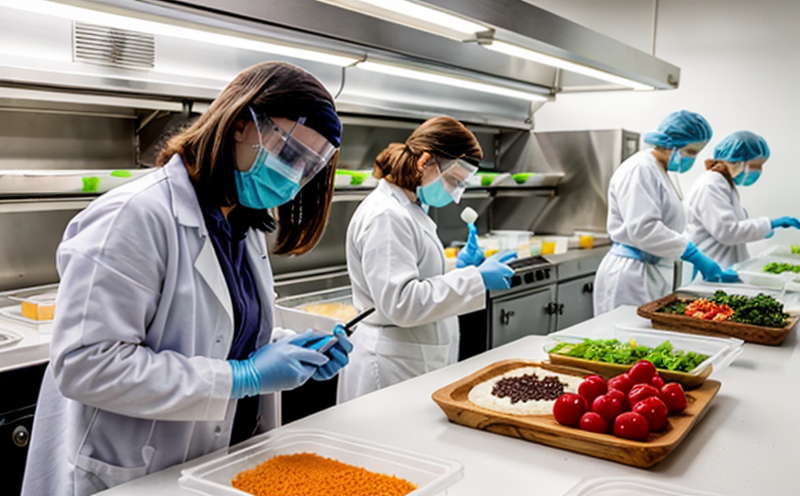ISO 21872 Vibrio cholerae Detection Testing
The detection and identification of Vibrio cholerae, the causative agent of cholera, is a critical process in food safety. ISO 21872 provides a standardized method for detecting this pathogen, ensuring accurate and reliable results across different laboratories.
ISO 21872 outlines specific procedures to identify Vibrio cholerae in water, food products, and other samples. This standard emphasizes the importance of stringent quality control measures to prevent false positives or negatives, which could impact public health.
The test involves several key steps: sample preparation, enrichment culture, isolation, and identification. Sample preparation includes thorough homogenization and dilution if necessary. Enrichment cultures help in growing the pathogen from low concentrations, making detection easier. Isolation techniques are then used to separate the target strain from other microorganisms.
Identification is typically done using phenotypic or molecular methods. Phenotypic tests involve biochemical reactions and colony morphology, while molecular methods use PCR (Polymerase Chain Reaction) for rapid and accurate identification. Both approaches ensure high specificity and sensitivity, critical for preventing the spread of cholera.
The process also involves strict adherence to safety protocols due to the potential virulence of Vibrio cholerae. Proper handling of samples and waste is essential to maintain laboratory safety standards.
ISO 21872 ensures that laboratories follow standardized procedures, leading to consistent results. This standardization is crucial for regulatory compliance and consumer trust. By adhering to this method, laboratories can ensure their tests are both accurate and reproducible.
The implementation of ISO 21872 also supports global efforts in infectious disease surveillance. The ability to detect and monitor the presence of Vibrio cholerae helps public health agencies respond swiftly to potential outbreaks, thereby protecting public health.
In conclusion, the application of ISO 21872 in Vibrio cholerae detection is not just about compliance; it's a commitment to excellence and safety. This standard ensures that laboratories deliver reliable results, contributing significantly to food safety and public health.
Eurolab Advantages
- Expertise in ISO Standards: Eurolab is a leading provider of microbiological testing services, specializing in the implementation of international standards like ISO 21872.
- State-of-the-Art Facilities: Our laboratories are equipped with advanced instrumentation and facilities to ensure precise and accurate results.
- Dedicated Technical Support: Eurolab offers comprehensive technical support, including training and consultation services for customers looking to implement ISO 21872.
We pride ourselves on delivering reliable, consistent, and compliant testing services. Our team of experts ensures that all tests are performed according to the highest standards, providing peace of mind to our clients.
Customer Impact and Satisfaction
- Enhanced Food Safety: By adhering to ISO 21872, Eurolab helps ensure that food products are safe for consumption.
- Compliance with Regulations: Our testing services help our clients meet regulatory requirements and avoid potential legal issues.
Customers benefit from the reliability of our results, which can significantly impact their reputation in the market. Compliance with international standards also boosts trust among consumers and regulatory bodies.
International Acceptance and Recognition
- Global Standards: ISO 21872 is recognized worldwide, ensuring that results from Eurolab are accepted in various markets.
- Credibility: The use of internationally recognized standards enhances the credibility and reputation of our clients.
The acceptance and recognition of our services by international bodies underscore the quality and reliability of our testing processes. This global standing is crucial for businesses operating in multiple regions, ensuring consistent standards across different markets.





